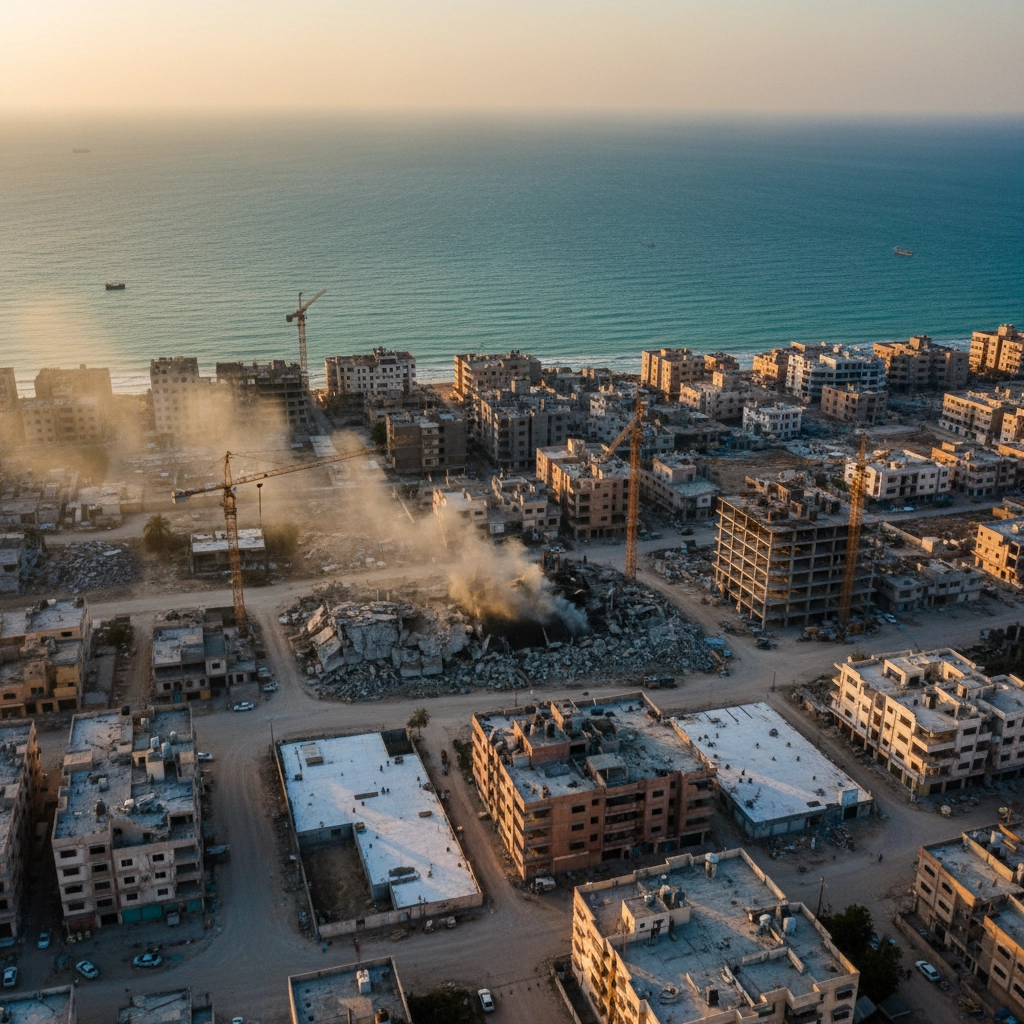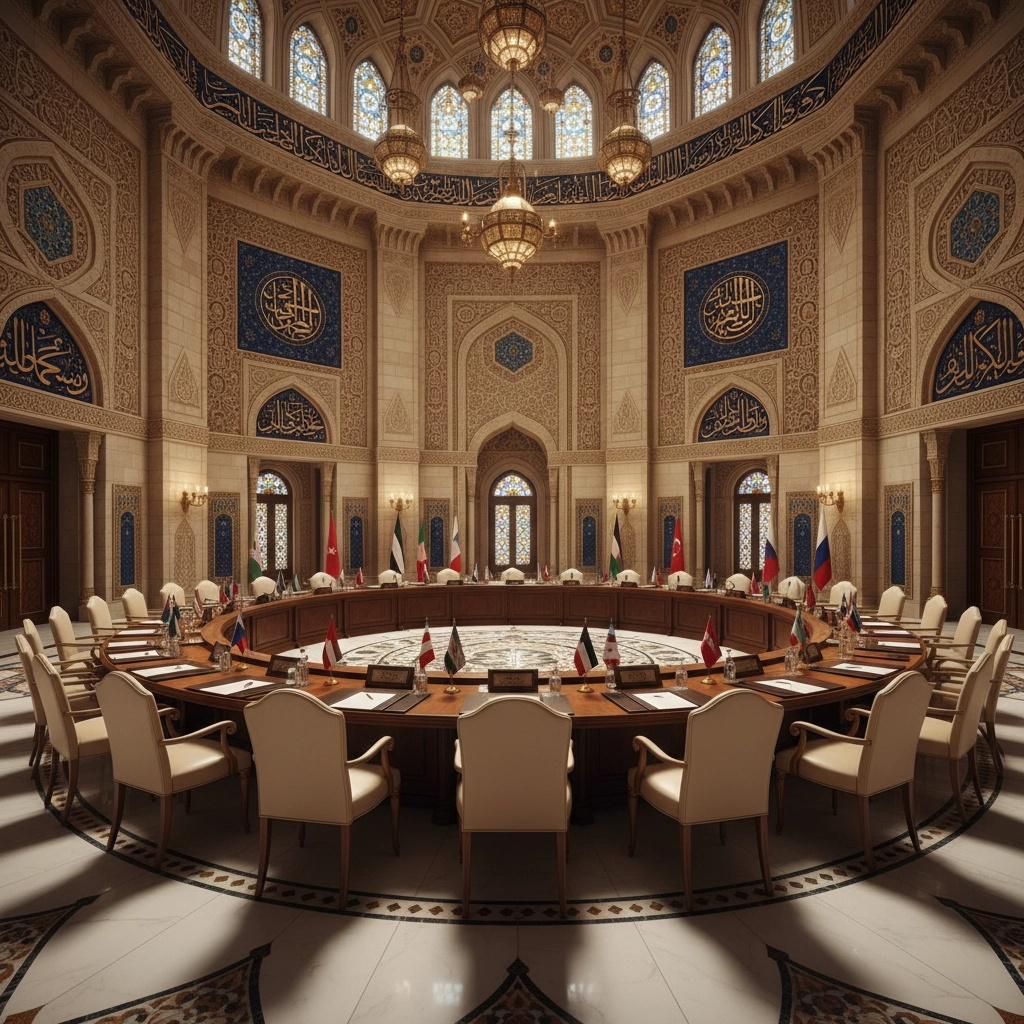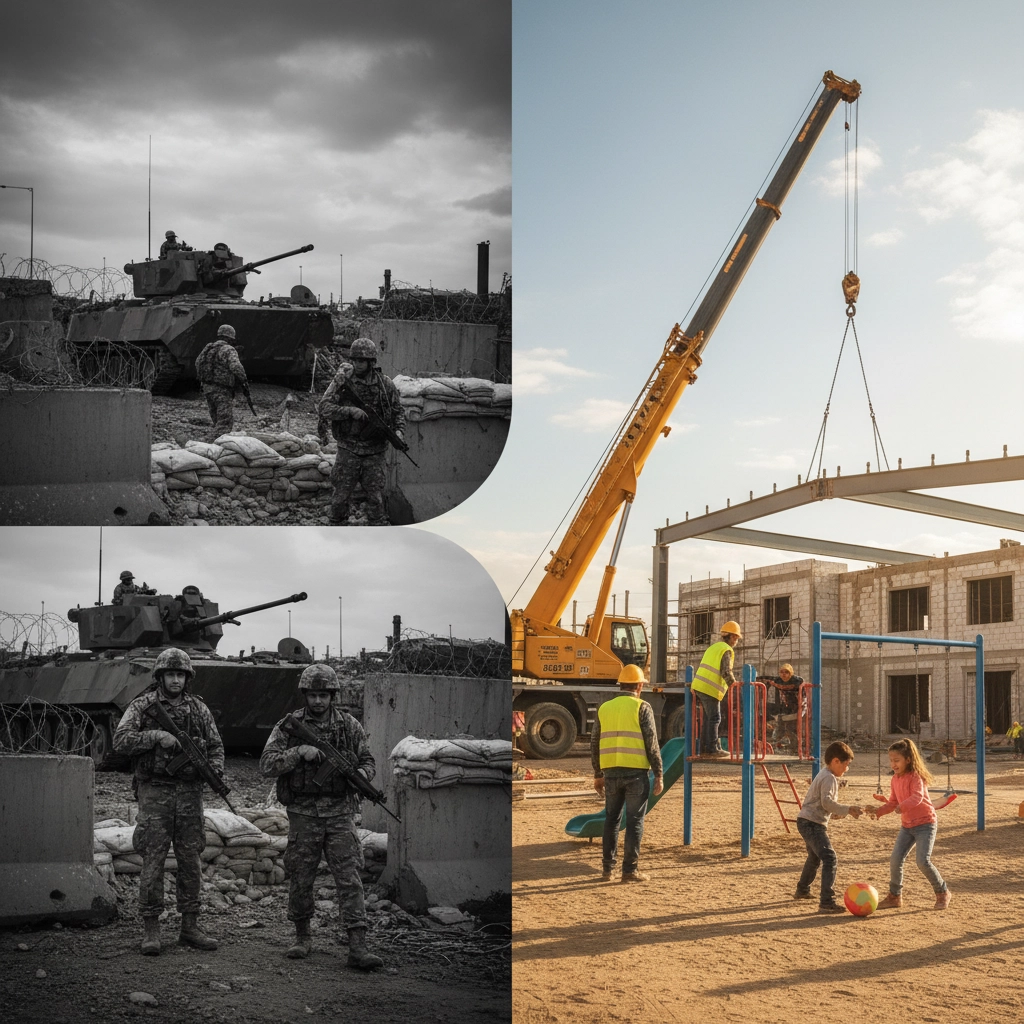Approx - 2 Weeks
Approx - 2 Weeks (14 Days)

Well folks, grab your coffee and pull up a chair because we need to talk about what's happening over in the Middle East with Trump's latest peace deal. Now, I'll be honest with you - foreign policy isn't exactly my wheelhouse here at Countryside Experience Podcast, but when something this big is happening in the world, it affects all of us regular Americans, and I've been doing my homework.
Back on September 29th, Trump rolled out what he's calling his 20-point Gaza peace plan. Now, I've seen different reports calling it 20 points, others saying 21 - but the meat and potatoes of it is pretty straightforward. According to what I'm reading from sources like BBC and CNN, this thing covers everything from getting those hostages home to completely rebuilding Gaza from the ground up.
The big ticket items include what they're calling "deradicalization programs" - basically trying to get folks in Gaza to stop teaching their kids to hate. There's talk of massive reconstruction projects, humanitarian aid flowing in, and here's the kicker - some kind of amnesty deal for Hamas members who agree to lay down their weapons.
J.D. Vance has been working behind the scenes on this thing too, from what I'm hearing. The Jerusalem Post reported that he's been the point man on a lot of the diplomatic heavy lifting, especially with getting the Gulf states on board.

Fast forward to October 13th, and Trump's over in Egypt at this fancy summit in Sharm el-Sheikh with President el-Sisi. More than 20 world leaders showed up for this thing. That's not nothing, folks. When you get that many big shots in one room, something serious is happening.
But here's what really caught my attention - Trump went to Israel first, spoke to their parliament (the Knesset), and Netanyahu called him "the greatest friend Israel has ever had in the White House." That's some pretty strong language right there.
Then comes the prisoner swap that everybody's talking about. Hamas released 20 Israeli hostages - living, breathing people who get to go home to their families. In exchange, Israel let go of about 2,000 Palestinian prisoners. Now, I don't know all the details about who those prisoners were or what they did, but that's a heck of a trade-off.
One thing that's got me cautiously optimistic is hearing about Saudi Arabia potentially joining the Abraham Accords. Al Monitor has been reporting on some serious wheeling and dealing going on with military and diplomatic agreements between Trump's team and the Gulf states.
Think about it this way - when you're trying to solve a neighborhood dispute, you need the neighbors to buy in. The Gulf states have money, influence, and they're tired of this mess too. If Saudi Arabia - the big dog in that region - officially signs onto peace with Israel, that changes everything.
The reconstruction money alone that these Gulf states are talking about investing could transform Gaza. We're talking about billions of dollars to rebuild schools, hospitals, roads - the whole nine yards. But here's the million-dollar question: can you rebuild a place while the folks living there are still committed to destroying their neighbors?

Now, I'd be lying if I said everybody's jumping for joy about this plan. CNN's been reporting plenty of skepticism from both sides. Some Israelis think Trump's being too generous with Hamas, and plenty of Palestinians are saying this plan doesn't go far enough for them.
The strain on the ceasefire is already showing, according to several reports I've been reading. There have been incidents, violations, folks testing the boundaries. That's human nature, I suppose, but it's also why a lot of us are scratching our heads about whether this thing will actually stick.
International oversight sounds good on paper, but we've seen how well that works in other parts of the world. Remember, we're talking about a place where some folks have been teaching their kids that killing Israelis is a religious duty. You don't undo that kind of programming with a handshake and some construction projects.
Here's what hits close to home for folks like us: when there's peace in the Middle East, gas prices tend to be more stable. Our kids in the military aren't getting shipped overseas. We're not spending billions of taxpayer dollars on conflicts that seem to go on forever.
But there's also the bigger picture about law and order. If this peace plan works, it's because both sides agreed that the violence had to stop and there were consequences for breaking the rules. That's something we can all understand, whether we're talking about Gaza or Main Street America.
Trump's been saying "the war is over" in Gaza to every reporter who'll listen. That's bold talk, and I hope he's right. But hope isn't the same thing as reality, and that's where I start getting those nagging doubts.

Here's where I'm scratching my head, folks. On paper, this all sounds pretty reasonable. Amnesty for Hamas members who give up violence, massive investment in rebuilding Gaza, programs to stop radicalizing kids, international peacekeepers to make sure everybody plays by the rules.
But Hamas isn't just some political party that lost an election. These are people who built tunnels under hospitals and schools to hide weapons. They've spent decades teaching their children that Jews are the enemy and that dying while killing them is the highest honor. You don't change that mindset with job training programs and new roads.
I keep thinking about what happens in six months, or a year from now, when the cameras are gone and the world moves on to the next crisis. Are these Hamas leaders really going to stay retired, or are they going to start rebuilding their weapons stockpiles?
The hostage exchange was a good start, don't get me wrong. Twenty families got their loved ones back, and that's worth celebrating. But it also showed that Hamas was holding onto people for two years, using them as bargaining chips. That tells you something about their mindset right there.
Look, I want this to work. I really do. The idea that we could have peace in the Middle East, that kids in Gaza could grow up learning math and science instead of how to make rockets, that Israeli families could live without fear - that's the American dream applied globally.
But there's a part of me that wonders if we're being naive. Sometimes, unfortunately, peace only comes after you've completely defeated the folks who refuse to stop fighting. That's not what anybody wants to hear, but it's the truth we learned in World War II, and it might be the truth here too.
If Gaza really lays down their arms, follows through on deradicalization, and becomes a productive neighbor instead of a constant threat, then Trump will have pulled off something nobody thought was possible. But if they use this peace to regroup, rearm, and plan the next attack, then we're going to be right back where we started, except with Hamas being stronger and better funded.
The bottom line is this: peace is a two-way street. You can't have it when one side is committed to the complete destruction of the other. I hope Trump's plan changes that fundamental equation, but I'm not holding my breath. Sometimes you have to root out the bad actors completely before the good folks can build something better.
That's just the view from my porch here in rural America. What do you think? Are we looking at real peace, or just a pause before the next round? Drop by our podcast page and let us know your thoughts.
Time will tell, folks. Time will tell.
{"one"=>"Select 2 or 3 items to compare", "other"=>"{{ count }} of 3 items selected"}
Leave a comment